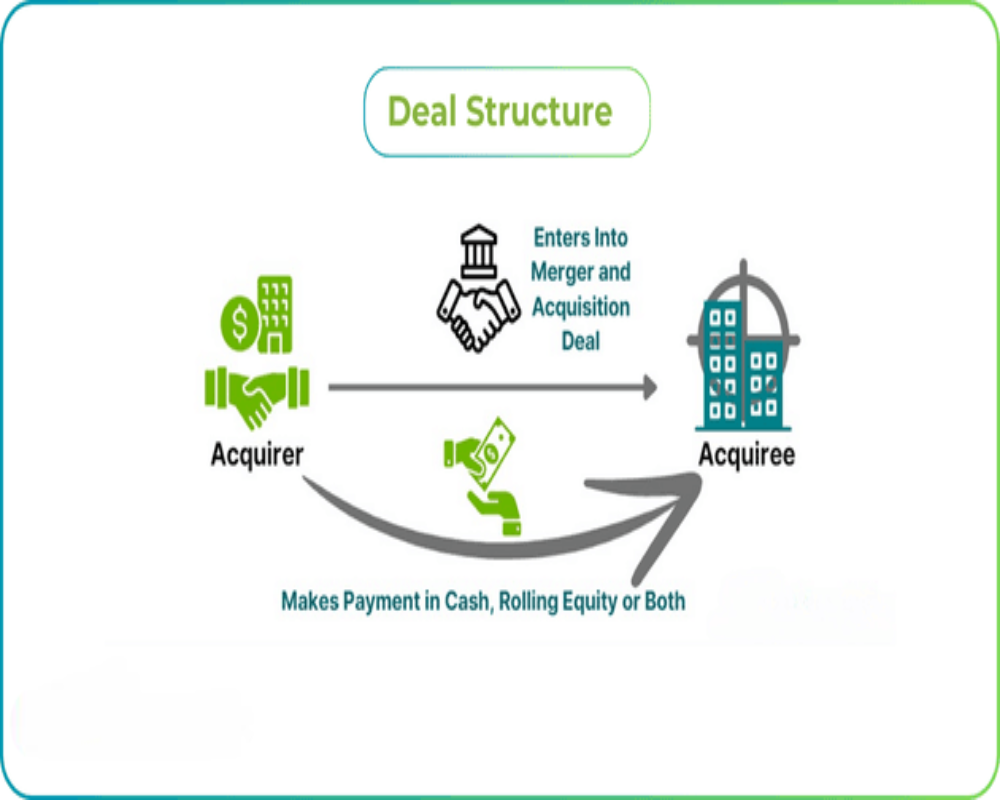Introduction
Industrial deal structuring is the foundational process of organizing the legal, financial, operational, and strategic components of a transaction involving industrial assets. These assets may include manufacturing plants, warehouses, processing units, industrial parks, or raw land zoned for industrial use. The structuring of a deal goes beyond price negotiation—it involves determining how the transaction will be executed, financed, transferred, and governed. A well-structured industrial deal minimizes risks, ensures regulatory compliance, and optimizes tax and investment outcomes. Understanding the key components of deal structuring is essential for investors, developers, and corporate decision-makers engaged in industrial transactions.
1. Determining the Nature of the Transaction
The first step in deal structuring is defining the type of transaction. It may involve a sale of assets, a share purchase, a long-term lease, a joint venture, or a public-private partnership. Each structure has unique legal and tax implications. Asset deals offer more control over what is acquired, while share deals may include liabilities and operational continuity.
2. Establishing Clear Transaction Objectives
Parties must clearly define their objectives—whether acquiring land for expansion, securing a revenue-generating facility, or entering a strategic partnership. Objectives shape the structure, timelines, and negotiation priorities. A clarity of purpose ensures that all elements of the deal are aligned with long-term business goals.
3. Selecting the Right Legal Entity
The choice of legal entity—be it a corporation, partnership, special purpose vehicle (SPV), or limited liability company (LLC)—has significant implications for liability, governance, and tax treatment. In many industrial deals, SPVs are used to isolate risks and simplify financing. The selected structure should support scalability, asset protection, and compliance.
4. Structuring Ownership and Control
Ownership arrangements determine who holds equity, voting rights, and operational control. In joint ventures or multi-party deals, this includes defining capital contributions, board representation, and decision-making authority. Clearly outlining control structures prevents conflicts and ensures accountability throughout the project lifecycle.
5. Financing and Capital Allocation
Financing arrangements are a central element of deal structuring. This includes determining the mix of equity and debt, identifying funding sources, and planning capital deployment. Options such as bank loans, institutional investments, mezzanine financing, or internal capital must be assessed based on cost, risk, and return expectations.
6. Drafting Payment and Consideration Terms
The structure of payments—whether lump sum, milestone-based, deferred, or performance-linked—affects cash flow and risk allocation. Consideration terms also include provisions for adjustments based on due diligence findings, working capital, or regulatory clearances. A well-defined payment plan ensures financial clarity and transaction continuity.
7. Tax Planning and Efficiency
Tax structuring is a key part of industrial deal planning. This includes evaluating the impact of capital gains, GST, stamp duty, and corporate income tax. Strategic use of tax treaties, exemptions, or incentives offered under industrial development policies can significantly improve net returns and investment viability.
8. Risk Allocation and Indemnities
Risk must be carefully distributed between the parties through indemnity clauses, representations, warranties, and insurance mechanisms. This protects the buyer from hidden liabilities such as environmental damage, tax arrears, or legal disputes. Risk-sharing provisions ensure that both parties are prepared for contingencies.
9. Compliance and Regulatory Clearances
Every industrial deal must conform to land laws, environmental regulations, zoning rules, factory licensing requirements, and safety standards. Deal structuring must factor in the timeline, cost, and complexity of obtaining approvals. Non-compliance can delay projects and result in penalties or legal challenges.
10. Transition and Operational Continuity Planning
When acquiring a running facility, transition planning is essential. This includes continuity of operations, employee retention, vendor contracts, and utility management. The deal structure should define the roles and responsibilities during the handover period to avoid disruptions and protect business value.
11. Dispute Resolution and Exit Options
A robust deal structure anticipates potential conflicts and exit scenarios. This includes establishing arbitration frameworks, jurisdiction for legal proceedings, and pre-defined exit strategies such as buy-back clauses, drag-along rights, or IPO options. These terms safeguard the interests of all stakeholders over the long term.
12. Documentation and Legal Framework
The final step in structuring the deal involves drafting definitive agreements—such as the sale deed, shareholders’ agreement, lease deed, or joint venture agreement. These documents must clearly reflect the negotiated terms and be legally enforceable. Legal due diligence is essential to validate all aspects before execution.
Conclusion
Industrial deal structuring is a multi-layered process that blends legal acumen, financial planning, operational insight, and strategic foresight. From selecting the transaction type and financing model to managing risks and ensuring regulatory compliance, each component plays a crucial role in determining the success and sustainability of the deal. A well-structured transaction not only protects the parties involved but also enhances the efficiency and profitability of the investment. In a highly competitive and regulated industrial landscape, strong deal structuring is not just advisable—it is indispensable.
Hashtags
#IndustrialDealStructuring #DealStructuringBasics #BusinessFinance #InvestmentStrategies #FinancialLiteracy #MergersAndAcquisitions #CorporateFinance #InvestmentBanking #BusinessGrowth #FinancialEducation #DealMaking #StrategicInvesting #IndustryInsights #FinancialPlanning #BusinessStrategy #NegotiationSkills #CapitalMarkets #Entrepreneurship #FinancialSuccess #WealthManagement


